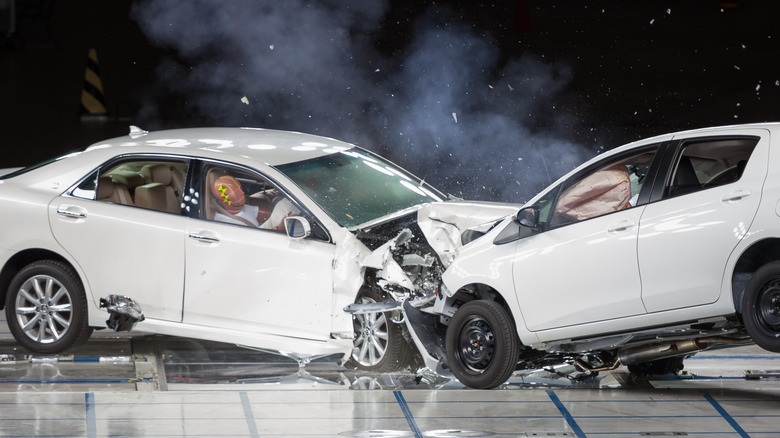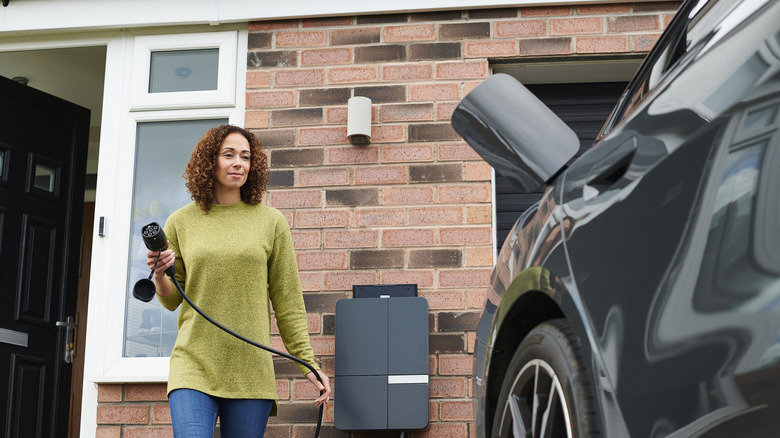The 5 Most Important Questions To Ask When Buying A New Car
In 2021, Forbes shared that 97.1% of households in the United States had at least one vehicle. With rising interest rates and inflation, Reuters claims that the average age of U.S. cars and light trucks is 12.5 years. For some people, car ownership can be one of the biggest purchases they'll ever make in their life, next to buying a home. Not to mention, you can expect to pay thousands in maintenance, insurance, and emergency repairs throughout the years.
In 2023, Forbes even claimed that the average length of a marriage is eight years, meaning your relationship with your car can last longer than most marriages. Knowing this, it's no wonder that buying a car can feel like a long-term commitment. Committing to a car purchase can drastically affect your finances, such as your cash flow, or it can also supplement your ideal lifestyle or limit your experiences. With the rise of ride-hailing or food delivery services, the right car can even help you make a living.
Whether buying your first automotive vehicle or adding another one to your roster, it's important to think and ask the right questions to avoid buyer's remorse. Here are some of the most important ones.
Do you expect any major life changes in the coming years?
Before deciding on the make and model of your new car, it's important to do an honest evaluation of what exactly you need it for. While many of us would like to buy our dream cars, the reality is that most of us need to be practical. Depending on what stage you are in life and what your hopes are for the future, your new car should ideally be able to supplement those needs.
Some major life changes that can and will impact the best vehicle to add to your home include if you have any plans to have aging family members in your care, have children, or adopt a pet.
For example, if you plan to live in a multigenerational household, it's best to get a car with enough seating. Suppose you are committed to caring for aging parents or have a family member with a disability. In that case, you may want to get a vehicle that can easily be retrofitted with a ramp or can fit a wheelchair. You may also want to consider adding some extra room for potential pets you may want to bring on road trips.
What is the primary purpose of the car?
Once you have an idea of more or less how your life will look, you can ask yourself what the purpose of the car purchase is. Typically, some of the everyday purposes people buy cars are for daily commutes, family, or adventure. While you can use a single car for all of these experiences, it's important to decide what the car will be used for the majority of the time.
Once the purpose of your vehicle is clear in your head, you can proceed to choose the type of car that fits your needs. For example, sedans are great for city driving because of their size and fuel efficiency. On the other hand, SUVs provide ample spaces for families, especially when school bags, sports equipment, and large groceries come into play. Alternatively, trucks can be amazing companions for business owners in more suburban areas who plan to haul around equipment, materials, or goods.
What's your budget?
When it's clear what the utility of this vehicle will bring into your life, you can now proceed to determine your budget and how you plan to finance the purchase.
First, you have to compute the expected cost of owning a vehicle, which includes additional factors, such as a budget for insurance, maintenance, and repair costs. Then, you can determine whether you are financially able to or want to buy the car upfront in cash. While this is a great way to avoid interest rates and even get discounts, this can hurt your cash flow and your spending capacity.
Second, it's best to inform yourself of financing terms, such as secured or unsecured loans. If you are qualified for a secured auto loan, you have to be able to offer collateral, which lenders can repossess if you're unable to meet the payments.
Third, you can decide if you want to lease your car instead, which lets you use it for a period of time without owning it. While this doesn't sound sexy at first, leasing means you can drive a flashier car or change it more frequently at a relatively lower payment plan and with overall lower maintenance costs.
However, leasing your car comes with a few rules, including staying below certain mileage limits and paying early termination fees. So, it's best to consider leasing primarily if you don't use your car that often or want to stay flexible in case of sudden lifestyle changes.
Do you have a preferred manufacturer?
If it's not your first rodeo, it's likely that you've already narrowed down a list of your preferred car brands. For new car buyers, choosing from the sea of options can be overwhelming. When it comes to choosing the right manufacturer, there are several factors to consider, such as safety, convenience, or resale value.
While most cars have to pass through stringent quality testing to be commercially manufactured, some cars are more likely to crash than others. So, if safety is a big issue for you, you should factor in safety ratings when making a decision. In addition, if you're an accident-prone person, your distance to authorized repair centers can also factor in the decision-making process.
Should you plan to resell your car, you should consider its expected resale value over time. If you expect to use your vehicle for many years, it's best to dig deep into the manufacturer's warranty coverage.
In general, car dealers will try to get the most money out of you as possible, steering you towards a car not on your list. With this, it's best to be mindful of all the sneaky questions that car dealers will ask, which could potentially lead you to unnecessary expenses.
Do you have non-negotiable buying values?
These days, people have realized the value of voting for the kind of world they want to live in using their hard-earned money, including when buying a car. This sometimes means buying a car from a local brand to support your country's workers and economy. Other times, it means considering an electric vehicle in an effort to reduce one's carbon footprint.
At the end of the day, the vehicle you buy will also reflect your values and priorities in your life. Whether appearing more elegant to your peers, needing it for commuting to work, or being your companion for raising a family, knowing exactly what you want from a car can keep you from making any long-term regrets.
Lastly, it's good to ask if a car is necessary for your lifestyle. Although unavoidable in some parts of the world, there are merits to investing in other methods of transportation, such as bikes or scooters.





